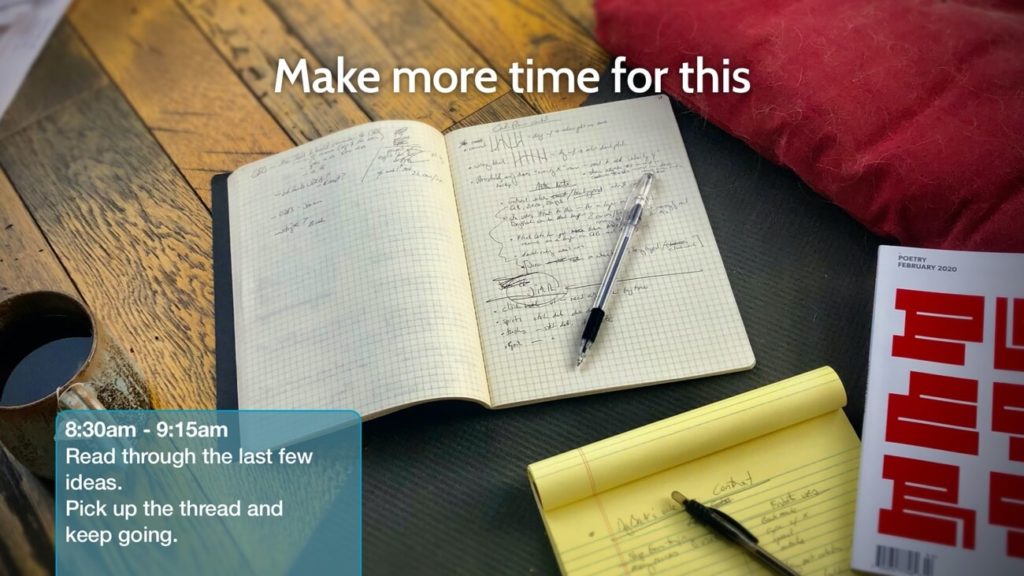
It can be hard to get started, even when you’ve blocked out time to work. Get a rolling start by reading through your last few pages of work to remind you what was engaging you then.
And be sure you’re setting an end-time for your work. This means you won’t stop when you don’t like the way the work is going. There is something about blocking off a start AND an end time that stops the questions about whether to keep going, lets you get quiet, and work.
I often find myself deferring work–and I think it’s because I’m waiting for the flash that will improve my ideas. The problem is, insight is the outcome of work, not just a starting point. And waiting-for-the-miracle-to-come stops us from valuing our work.
It’s not that revelation is for other people or better minds: our current work is the result of hundreds of revelations. Our ordinary work is the revelation engine.
Get it out there.
Great point about reading through your last few pages.
Ernest Hemingway wrote the following about writing, but could be used more generally:
“Always stop while you are going good and don’t think about it or worry about it until you start to write the next day. That way your subconscious will work on it all the time.”
And one I just learned of:
“All you have to do is write one true sentence. Write the truest sentence that you know”
I love that Hemingway thing. I’ve always heard it as “Always stop when you know what you’ll do next,” and saw that both as a corrective against being predictable AND as a way to make sure re-starting was easier.